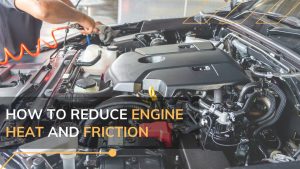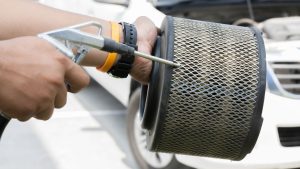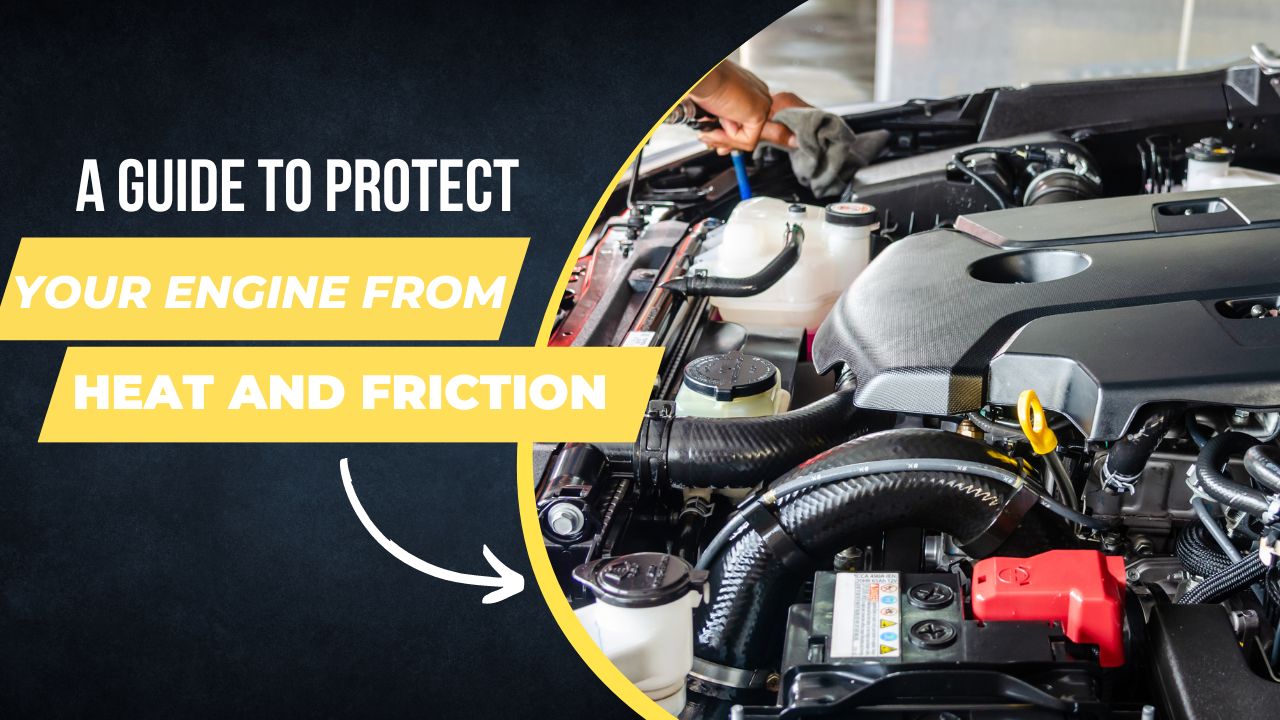Your engine is the beating heart of your automobile; so you need to safeguard it whether you’re just commuting to and from work every day or just chilling with your friends around your area at high speed. Your car’s engine performs best when it is hot. When an engine is cold, its parts break down more easily, produce more pollutants, and run less efficiently. This article briefs you on how to protect your engine from heat and friction.
The Effects of Heat and Friction on Engine Performance
It’s not surprising that overheating can happen easily in engines. In warm weather, engine temperatures can soar from their typical range of 75 to 105°C to as high as 130°C (266°F). This could result in expensive or even irreversible damage.
The first step in avoiding these issues is learning to recognize the warning indicators. Burning odours, pounding noises, a temperature gauge in the danger zone, and an abnormally hot bonnet or hood are all signs that your engine overheating.
We don’t give friction much thought, although it’s one of the more potent physical forces out there. Gas mileage loss is one of the main issues associated with excessive friction. Friction, heat, oil, and fuel economy can all interact and have various effects on one another. Oil makes mechanical parts lubricated and enables smooth operation.
Without oil, friction causes energy to be lost, which lowers efficiency. Increased friction, increased heat, and decreased fuel economy can all be a result of old, dirty, or insufficient oil levels since your engine must work harder to make up for the energy loss.
When molecules come into close contact with one another and their physical characteristics produce drag, friction occurs. You rely on friction to work for you when holding your child’s hand across the street or slamming on the brakes of your car. The better friction, the more resistance. But friction has disadvantages as well, and occasionally you wish it didn’t function so well. Inside machinery, this is especially true. Let us understand the same below.
How To Reduce Engine Heat And Friction
The Engine heat and friction may cause a lot of damage to your vehicle. It is very important to notice that these have to be monitored regularly to ensure the proper functioning of the car and to learn how to protect your engine from heat and friction. The various measures to be adopted to reduce engine heat and friction are:
Change Oil
As a result of reduced friction, moving elements of an engine can “float” past one another rather than rubbing against one another. An oil change is an essential phenomenon to reduce the wear and tear of the engine. Follow the recommendations in your car’s owner’s manual regarding how frequently you should have your oil changed. Keep in mind that some circumstances, like stop-and-start traffic and city driving, can increase how frequently you should have an oil change.
Inside the engine, the engine oil acts as a lubricant between moving parts, but after time, it begins to get too unclean to accomplish its job. Get your engine’s oil changed following the manufacturer’s recommendations if you want to keep it protected.
Check Out Any Weird Noises
Start looking for a problem if your engine starts making strange noises.
It can be something as straightforward as a loose bolt that you can tighten in 30 seconds, or it might be something more sophisticated that needs to be taken to the shop. This is one of the symptoms that deal with how to protect your engine from heat and friction.
Maintaining the cooling system
Metal tends to warp and deform when exposed to high temperatures. Keep your engine from heating up to those levels. Maintain the radiator, hoses, coolant, and other parts of the engine’s cooling system to make sure everything is functioning properly.
Ensure that the water/coolant reservoir is full. Through the engine’s tubes, the mixture absorbs heat. Fans in the radiator circulate the mixture by cooling it. Low coolant levels prevent the engine from absorbing adequate heat, which increases the risk of severe overheating.
Examine your coolant once your engine has had time to cool. Whether it is green, red, or another colour, it should be vivid and retain its original hue. It could be necessary to flush the system if you notice any particles in the liquid or an oily surface. Maintaining a healthy supply of coolant will assist you to prevent overheating the engine, particularly if high friction is a factor.
Make sure you change your belts as recommended
Make sure your pullies are rotating properly when you’re changing your belts by giving them a quick inspection. Parts of your engine may burn out because they can’t operate properly due to a seized pulley, which can also cause belts to wear out and break too soon.
Use a motor oil specially formulated for your vehicle
By controlling and absorbing heat, protecting vital components from harm, and lowering fuel consumption, using high-quality engine oil for both vehicles and motorcycles can aid in the fight against excessive engine temperature.
This is particularly crucial in the summer because heat can cause engine oil to thin down, necessitating a thicker, heavier oil during the warmer months.
Change the Air Filter
Checking the air filter and replacing it as necessary should become a regular part of your car maintenance schedule. Fuel consumption rises as a result of a blocked airflow through the engine caused by a clogged air filter.
Replace Your Spark Plugs and Battery
Regularly inspect your car’s spark plugs and replace them as necessary. They are important for the gasoline combustion process in your car and can cause your engine to stall. Heat can dissolve the battery’s acid.
Check your battery’s levels (or have a professional do it for you) and keep an eye out for any buildup on the battery’s exterior. A dead battery is the last thing you want to experience. Even if you do, call our roadside assistance service and our mobile mechanics will be there to help you in no time.
At the end
Your heart is essential to your survival, just as the engine in your car is essential to its operation. To ensure that your car will continue to serve you well for years to come, be sure to perform your routine maintenance as directed.
As is often said, prevention is preferable to treatment. Although you might not anticipate your engine overheating and believe you can fix it when it occurs, this could not always be the case. So, prefer opting for a mobile mechanic service which would provide instant relief.
You can make sure that your car has what it takes to survive the heat by keeping a close eye on it, giving it a fast tune-up, and taking some precautionary measures. Don’t let the sun’s heat and the increased friction cause your engine to suffer.
I hope this article helped you in knowing how to protect your engine from heat and friction, although a weekly vehicle inspection may take an hour or so, it can occasionally save gasoline, money, and even lives. Therefore, if you carefully maintain your vehicle, it will ensure your safety while driving. The time it takes to check these critical components can ultimately save money, gasoline, and even lives.
So, think wisely and make sure you maintain the engine safely.
